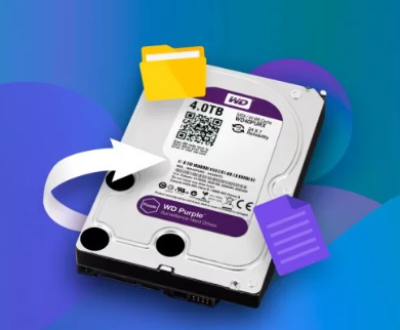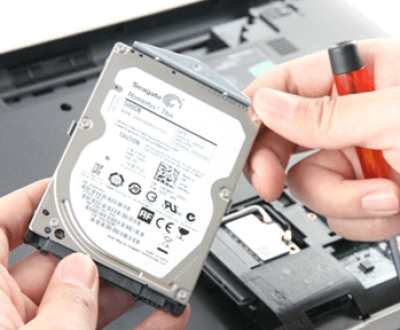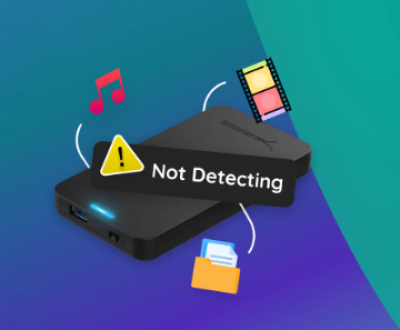Data loss is a common issue that can occur due to various reasons, impacting individuals and businesses alike. If you find yourself in Houston, Texas, facing hard drive issues, this guide will delve into the nuances of hard drive recovery, the causes of data loss, the recovery process, local service providers, and proactive measures to protect your data.
1. Types of Data Loss
Logical Failures: These issues occur due to software malfunctions, such as file system corruption or accidental deletions. Logical failures usually allow for better recovery chances, as the drive remains physically intact.
Physical Failures: Hardware malfunctions, like mechanical or electronic failures, fall under this category. These often require specialized tools for recovery.
Firmware Corruption: Sometimes, the firmware—the software controlling the hard drive—becomes corrupted, complicating data retrieval.
External Damage: Environmental factors such as water damage, fire, or physical impacts can also lead to data loss.

2. Signs of Hard Drive Failure
Identifying the early signs of hard drive failure can help mitigate data loss. Symptoms include:
Unusual noises (clicking, grinding)
Frequent system crashes or freezes
Files becoming inaccessible or corrupted
The operating system failing to recognize the drive
Error messages when opening files
3. DIY Recovery vs. Professional Services
While some may attempt DIY recovery using software tools, caution is advised. Improper handling can lead to permanent data loss, especially in cases of physical failure. Professional data recovery services have the expertise to manage complex issues effectively, providing higher success rates.
The Data Recovery Process
Professional data recovery involves a series of defined steps to retrieve lost data. Below is a detailed breakdown:
1. Initial Assessment and Diagnosis
Upon contacting a recovery service, the first step is typically a diagnostic evaluation to identify the type of failure (logical or physical) and determine the best approach for recovery.
Many providers offer free diagnostic evaluations to give clients an understanding of the issue and potential costs.
2. Logical Recovery
For logical failures, technicians use specialized software to scan the drive for recoverable data, including:
Scanning the file system for lost partitions or deleted files
Utilizing algorithms to reconstruct the directory structure and recover files
Extracting data and saving it to a secure location
3. Physical Recovery
Physical recovery is more complex and usually takes place in a controlled environment (cleanroom). The process generally involves:
Opening the hard drive in a cleanroom to prevent contamination
Diagnosing the extent of physical damage and replacing faulty components as needed
Cloning the drive to a functional hard drive to extract data without further risk
4. Verification and Data Integrity Check
After recovery, technicians verify the integrity of the recovered data, checking files to ensure they are uncorrupted and functional.
A report detailing the recovery process and the files that were successfully retrieved is provided to the client.
5. Data Delivery
The recovered data is delivered to the client, typically on a new storage device or through secure online transfer.
Data Recovery Services in Houston
Houston boasts a variety of professional data recovery services equipped to handle different types of data loss situations. Here are some of the most reputable options:
1. Houston Data Recovery
Overview: Houston Data Recovery specializes in both logical and physical data recovery from hard drives, SSDs, RAID arrays, and other storage devices.
Services: They provide comprehensive recovery solutions and are known for their high success rates in recovering lost data.
Pricing: They offer free diagnostics and transparent pricing based on the complexity of the recovery process.
2. Secure Data Recovery Services
Designed for both personal and professional use, this software provides a user-friendly interface that simplifies the recovery process. Whether you’ve accidentally deleted important documents, lost data due to a formatting error, or experienced a hardware failure, Panda Assistant is equipped to help.
Powerful Recovery Algorithms: Panda Assistant utilizes advanced scanning techniques to locate and restore lost data from various devices, including hard drives, SSDs, USB drives, and memory cards.
Preview Functionality: Users can preview recoverable files before restoration, ensuring they only retrieve the necessary data.
Wide Compatibility: The software supports multiple file types and is compatible with both Windows and Mac operating systems.
Secure Recovery: Your data privacy is paramount. Panda Assistant guarantees a secure recovery process, protecting sensitive information throughout.
3. Data Recovery Lab
Overview: Data Recovery Lab focuses on fast and reliable data recovery services, catering to both personal and business needs.
Services: They specialize in recovering data from various storage devices and utilize proprietary technology to maximize recovery success.
Pricing: They offer free diagnostics and competitive pricing, making them a viable option for data recovery.
4. We Recover Data
Overview: We Recover Data has established a solid reputation for its high success rate in data recovery and exceptional customer service.
Services: Their team is skilled in handling logical and physical failures, providing recovery services for hard drives, SSDs, and memory cards.
Pricing: They provide free evaluations and a no-recovery, no-fee guarantee, ensuring client satisfaction.
5. Drive Savers
Overview: Drive Savers is renowned for its extensive experience and advanced recovery techniques.
Services: They offer a wide range of data recovery services, including hard drive recovery, SSD recovery, and mobile device recovery.
Pricing: Drive Savers provides free evaluations and clear pricing, ensuring transparency throughout the process.
Factors to Consider When Choosing a Data Recovery Service
When selecting a data recovery service in Houston, consider the following factors:
1. Experience and Reputation
Look for a service with a solid track record and positive customer reviews. Experience in the industry can significantly influence recovery success rates.
2. Certifications and Cleanroom Standards
Ensure the company operates in an ISO-certified cleanroom environment for physical recovery, which is crucial for preventing contamination.
3. Transparent Pricing
Choose a provider that offers free diagnostics and clear pricing without hidden fees. A trustworthy service should provide an estimate before starting the recovery process.
4. No-Recovery, No-Fee Policy
Opt for companies with a no-data, no-fee policy, ensuring you won’t incur charges if your data cannot be recovered.
5. Turnaround Time
Consider how quickly you need your data recovered. Some providers offer expedited services for urgent situations, though these may come at an additional cost.
6. Data Security and Confidentiality
Ensure that the data recovery service has strict security measures to protect your sensitive information during the recovery process. Look for companies that adhere to data protection regulations.
Preventing Future Data Loss
While professional data recovery services are invaluable, taking proactive steps to prevent data loss is essential. Here are some effective strategies:
1. Regular Backups
Implement a robust backup strategy to safeguard your data. Utilize external hard drives, cloud storage, or network-attached storage (NAS) solutions for regular backups.
2. Use Surge Protectors
Protect your devices from power surges and outages by using surge protectors and uninterruptible power supplies (UPS).
3. Install Reliable Antivirus Software
Protect your computer from malware and viruses that can corrupt files by using reputable antivirus software. Regularly update your software for maximum protection.
4. Monitor Drive Health
Regularly check the health of your drives using SMART (Self-Monitoring, Analysis, and Reporting Technology) systems to catch potential issues early.
5. Handle Devices with Care
Prevent physical damage by handling hard drives and other storage devices with care, avoiding drops and exposure to extreme conditions.
6. Use File Recovery Tools
Consider using file recovery tools to periodically scan your drives for lost files, helping you recover data in less critical situations.
7. Educate Yourself and Your Team
If managing a business, ensure that employees understand the importance of data security and know how to respond to potential data loss.
About us and this blog
Panda Assistant is built on the latest data recovery algorithms, ensuring that no file is too damaged, too lost, or too corrupted to be recovered.
Request a free quote
We believe that data recovery shouldn’t be a daunting task. That’s why we’ve designed Panda Assistant to be as easy to use as it is powerful. With a few clicks, you can initiate a scan, preview recoverable files, and restore your data all within a matter of minutes.
Subscribe to our newsletter!
More from our blog
See all postsRecent Posts
- How to recover data from formatted hard disk 2025-07-14
- How to recover files from hard disk 2025-07-14
- How to recover data from portable hard disk 2025-07-14

 Try lt Free
Try lt Free Recovery success rate of up to
Recovery success rate of up to









